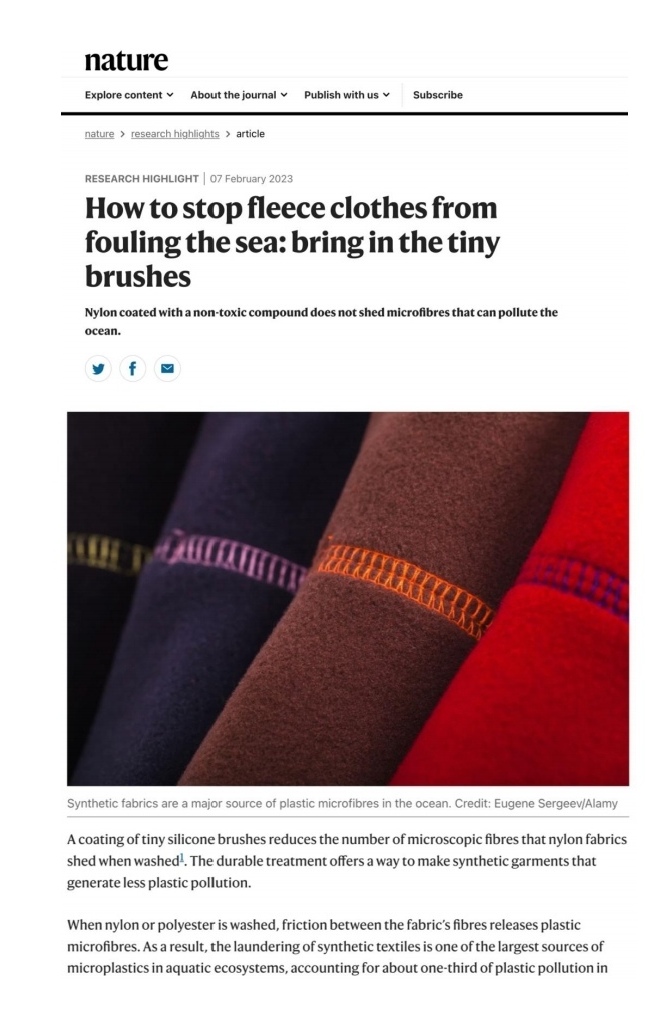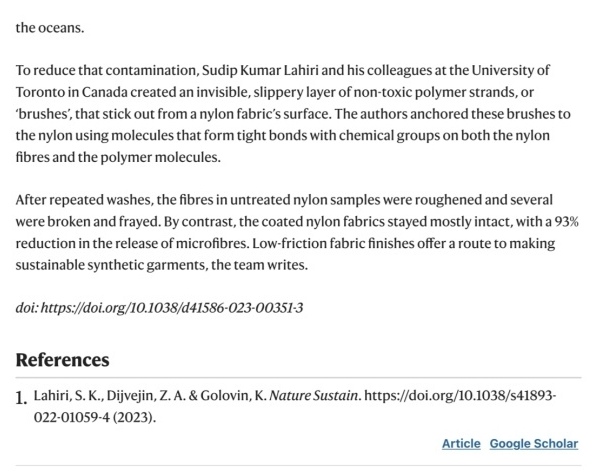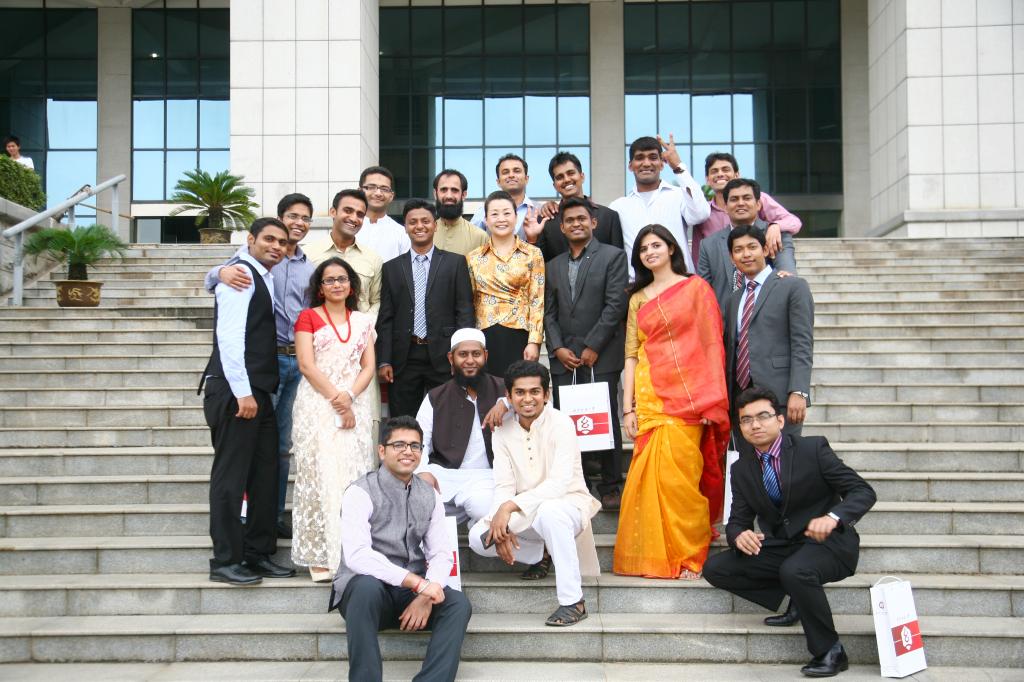Recently, Nature magazine which is the world's top journal published the scientific research achievements of Sudip Kumar Lahiri,a Bangladeshi alumnus of Class of 2015 in textile and chemical industry of Wuhan Textile University, with the title---How to stop flight cloths from fouling the sea: bring in the tiny brushes. The Nature is an international and interdisciplinary weekly scientific journal of general concern to the scientific community.


According to the article: To reduce that contamination, Sudip Kumar Lahiri and his colleagues at the University of Toronto in Canada created an invisible, slippery layer of non-toxic polymer strands, or 'brushes', that stick out from a nylon fabric's surface. The authors anchored these brushes to the nylon using molecules that form tight bonds with chemical groups on both the nylon fibres and the polymer molecules. After repeated washes, the fibres in untreated nylon samples were roughened and several were broken and frayed. By contrast, the coated nylon fabrics stayed mostly intact, with a 93% reduction in the release of microfibres. Low-friction fabric finishes offer a route to making sustainable synthetic garments, the team writes.

Sudip Kumar Lahiri is one of the first batch of China Scholarship Council Enterprise Scholarship students in our university. He came to School of Chemistry and Chemical Engineering in September 2013 to study for a master's degree. After graduation in 2015, he was admitted as a doctoral candidate of Huazhong University of Science and Technology. Now, he is a postdoctoral student of the University of Toronto, Canada. During his study at the WTU, under the care and support of Lin Li, the Director of the International Office, and the careful guidance of the weighing professor of the School of Chemistry and Chemical Engineering, he worked hard and achieved excellent results. "I am very appreciative that my years of study have paid off. I often thank the teachers and students of WTU for their profound friendship. Therefore, I shared this good news with the teachers of my alma mater at the first time. The professional teaching team and first-class scientific research facilities of WTU have also laid a solid foundation for my future study.” He recalled.

To this day, WTU has cultivated more than 3000 high-level international talents from countries along the "The Belt and Road" and Asia, Africa and Latin America. Some of them continue to study in well-known universities in China and even the world, and some are still active on the world stage in textile, clothing, foreign trade, management and other fields. They gradually grow into a youth force to promote industry development and cultural exchanges between China and the world.
